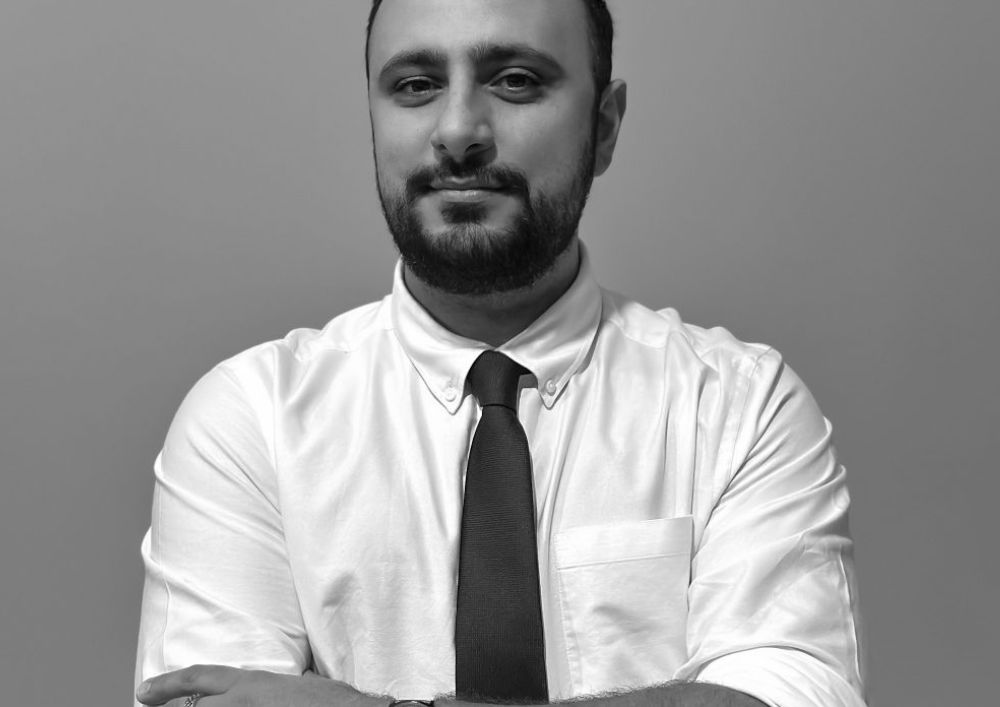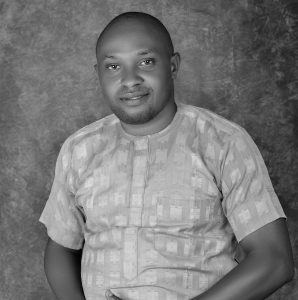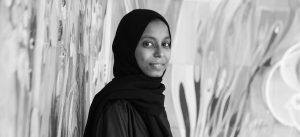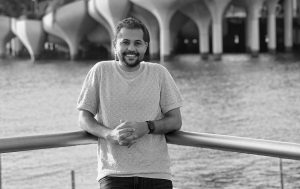: Interviews
Legacy Builders: Anthony Bou Kabalan Geagea
Anthony Bou Kabalan Geagea | Conservation Architect | DGA Inventory Officer, Lebanon
Which workshops did you attend?
I participated in the summer school program “Digital Tools for Cultural Heritage Management, 2025” focused on QGIS, laser scanning, and photogrammetry; a combination of tools essential for heritage documentation and spatial data analysis. When I first enrolled, I expected to gain technical knowledge and practical skills. What I didn’t expect was how transformative the experience would be, not only for my projects but also for my personal and professional growth.
Was the training an opportunity to enhance your connection with your peers?
Absolutely. One of the most enriching aspects of the program was the diversity of its participants. Coming from different disciplines and countries, we brought varied perspectives to the table, fostering dynamic discussions and collaborative learning. These interactions extended well beyond the classroom and helped create a network of peers with whom I continue to exchange ideas and expertise.
Has the training contributed towards the improvement of your career?
Without a doubt, the training was exceptionally well designed and directly aligned with the needs of my field. As someone working in heritage documentation, the sessions on GIS tools, 3D modeling, and field-based data collection were immediately applicable to my day-to-day responsibilities. The curriculum struck an effective balance between theoretical foundations and hands-on practice, strengthening my professional profile and deepening my technical expertise.
The skills and knowledge I gained through the summer school have been especially valuable in my current role as Inventory Officer at the Directorate General of Antiquities (DGA) in Lebanon. In this position, I support the research and integration of geographic data and heritage descriptions into a comprehensive geospatial inventory of endangered sites in South Lebanon, many of which are currently at risk due to the ongoing war in the region. The use of QGIS, central to both the training and my present work, plays a crucial role in enabling the DGA to maintain an up-to-date, accurate, and accessible database of the region’s vulnerable cultural heritage assets.
Do you feel that your ability to perform relevant tasks has improved?
Yes. My ability to handle spatial data, conduct field surveys, and perform digital documentation tasks has improved significantly. Thanks to the course, I now confidently apply advanced QGIS techniques and photogrammetric workflows in my professional practice. What made this particularly impactful was the dedication of Dr. Cornelis, whose passion and continuous availability ensured that every participant gained clarity and support throughout the entire program.
Following the completion of the training, has your project benefited? How?
My current work involves documenting and managing cultural heritage assets using digital tools and spatial analysis. Since completing the training, the improvements in my workflow have been substantial.
- Field sites that were once captured using basic documentation methods are now rendered with much higher precision.
- The enhanced accuracy and detail have improved analysis, interpretation, and communication with stakeholders.
- Whether for internal reports, presentations, or long-term archiving, the quality of my project outputs has increased noticeably.
This training has directly strengthened the reliability and depth of the heritage documentation work I produce, ultimately benefiting the organizations and communities that depend on this data.
Would you recommend this training to others?
I totally recommend this program to heritage professionals, archaeologists, and anyone involved in spatial analysis or digital documentation. The training is rigorous, practical, and deeply relevant, offering not just technical skills but also a supportive and inspiring learning community. It is a meaningful opportunity to grow both professionally and personally while contributing to the preservation and understanding of our shared cultural heritage.
Legacy Builders: Peter Adewale Jegede
Peter Adewale Jegede | Consultant Curator and Heritage Researcher, Olusegun Obasanjo Presidential Library, Nigeria & 4th Cohort of Case Study Researcher, Open Restitution Africa
Which workshop(s) did you attend?
I have participated in several HERITΛGE programmes, including Engaging Communities in Cultural Heritage, Temporary Exhibition and Touring Strategies, Conservation I, Conservation II, and I will complete Conservation III in November.
Was the training an opportunity to enhance your connection with your peers?
Yes. The workshops created a space where practitioners across Africa and beyond could exchange ideas and challenges. These connections have proved valuable in my ongoing work with communities affected by restitution.
Has the training contributed towards the improvement of your career?
Absolutely.The courses strengthened my curatorial and research practice, especially in community engagement, preventive conservation, and exhibition development. They also expanded my professional visibility in discussions around restitution in Nigeria.
Do you feel that your ability to perform relevant tasks has improved?
Yes. I now approach community-focused heritage work with clearer methods and greater confidence. The HERITΛGE training refined my skills in co-creation, documentation, and culturally sensitive interpretation, all of which I apply directly in my restitution engagements.
Following the completion of the training, has your project benefited? How?
My work at the Olusegun Obasanjo Presidential Library, Open Restitution Africa and my broader engagements in Nigeria and beyond have benefited significantly. The training has helped me design community-centred dialogues following restitution, such as the Restitution 101 Screening and Case Study Discussions that attracted about ninety participants. It shaped the way I facilitated conversations with descendant communities, allowing them to reflect on memory, trauma, and healing from their own perspective.
It has also strengthened my collaboration with communities in Ile-Ife, who are now exploring opportunities for a similar programme. The knowledge gained from HERITΛGE directly informed how I approached these discussions, ensuring that community voices remain central in post-restitution interpretation and planning.
Would you recommend this training to others?
Yes, without hesitation. The workshops are practical, engaging, and transformative. Anyone working in heritage, particularly those involved in archaeological work, preservation of heritage sites, collection management, exhibition, restitution or community engagement, will find them invaluable.
Legacy Builders: Khaulah Abdulkadir
Khaulah Abdulkadir | Project Coordinator: The Urban Heritage Regeneration Accelerator, Kenya
Which workshop(s) did you attend?
Conservation Workshop I & II, and Digital Tools for Heritage Management.
Was the training an opportunity to enhance your connection with your peers?
Yes. I met inspiring professionals who not only guided me throughout the course discussions but also introduced me to membership in key heritage organizations I hadn’t known about before. I also built lasting bonds, a professional with restoration experience will visit Lamu [island in Kenya]soon to support my project. He has been instrumental in amplifying my work and helping me refine my research writing.
Has the training contributed towards the improvement of your career?
The conservation training taught me to frame a clear restoration mission, highlight Lamu Old Town’s significance, and communicate its conservation infrastructure effectively. With the guidance and trust of my team, I successfully applied to and was selected for the Urban Heritage Regeneration Accelerator initiative, which I now coordinate. I am also honored to be selected for support from the Stavros Niarchos Foundation Scholarship Program for Heritage Managers in Africa, through which I hope to continue learning and achieve even greater impact in heritage conservation.
Do you feel that your ability to perform relevant tasks has improved?
Yes. I gained skills in assessing and articulating heritage values & significance, addressing authenticity issues, aligning with international charters, and developing a documentation strategy for Lamu’s buildings. Presenting my project during the workshops, and receiving strong peer support and selection as a case study, greatly boosted my confidence. This encouragement motivated me to explore the historic urban landscape approach further, which strengthened my case study presentation at the UNESCO Headquarters and enabled meaningful engagement in the forum.
Following the completion of the training, has your project benefited?
Absolutely yes. The final assignment of Conservation I provided the framework to clearly communicate the project’s mission, global significance and the urgent need to conserve the Lamu Old Town, which I believe contributed to its selection into the Accelerator initiative. Furthermore, it has helped me and my team in identifying the necessary kind of resources for its success and is now seeking support for that. It also helped me identify the most suitable communication strategies and the right organizations to partner with, strengthening support.
Would you recommend this training to others?
Definitely! The trainings are ideal for emerging professionals seeking foundational knowledge and opportunities to grow in the heritage field. Engaging sessions and supportive lecturers and organizers further fuel passion, build expertise, and deepen understanding of heritage conservation practices.
Legacy Builders: Dr Mohamed Bashir
Dr Mohamed Bashir | Assistant Professor, Department of Archaeology, University of Khartoum
Which workshop did you attend?
I had the privilege of attending the following workshops:
1. ‘Summer School Engaging Communities in Cultural Heritage’, held from June 18 to June 30, 2024.
2. ‘Successful Fundraising for Heritage Managers: Strategies and Best Practices’, conducted from March 17 to
March 19, 2023.
3. ‘Interpreting Heritage and Engaging Communities for Climate Change’, took place from December 1 to
December 3, 2023.
4. ‘Introduction to Heritage Interpretation for Site Managers’, held from November 25 to November 27, 2022.
Has the training contributed towards the improvement of your career?
Yes, it has enhanced my ability to engage professionally with the cultural heritage community. As a result, I have been able to work autonomously and have recently published two articles related to cultural heritage management and community engagement, one in the African Archaeological Review in 2025 and another forthcoming in Sudan & Nubia, the bulletin of the Sudan Archaeological Research Society of the British Museum.
Do you feel that your ability to perform relevant tasks has improved?
Certainly, I now feel well-prepared to address topics such as cultural heritage, interpretation, management, and community engagement within the contexts of Nubia and Sudanese Archaeology. The knowledge I gained has significantly improved my work, and I am currently developing my own research projects based on these learnings.
“Utilizing the insights gained, I created a questionnaire to gather important perspectives from the local community regarding cultural heritage, their interactions with archaeologists, and their needs for future work. This has led to the development of a research project based on their feedback.”
Following the completion of the training, has your project benefited?
My project centers around an archaeological site in the Nubian region of Northern Sudan called Kedurma, dating back to the Meroitic period from the 3rd century BC to the 4th century AD.
The workshops I attended have greatly influenced my work. I have been able to collaborate more effectively with local communities in my research area. Utilizing the insights gained, I created a questionnaire to gather important perspectives from the local community regarding cultural heritage, their interactions with archaeologists, and their needs for future work. This has led to the development of a research project based on their feedback, and I plan to continue involving them in my future endeavors, offering them a platform to participate and share their viewpoints.
Was the training an opportunity to enhance your connection with your peers?
Absolutely, it provided a valuable opportunity to engage with my peers, learn from them, and establish a network with experts in cultural heritage.
Would you recommend this training to others?
Absolutely, I always make a point to share information about the training with my colleagues and students.




